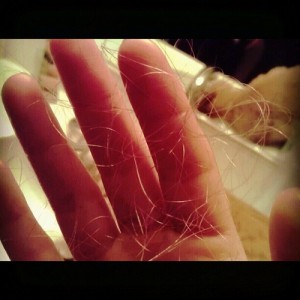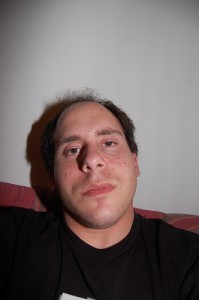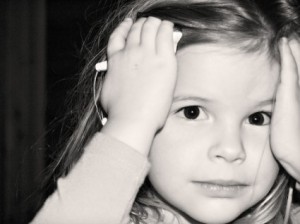Introduction:
Hair loss also known as Alopecia Areata is a disease in which there are localized circular patches of sudden hair loss. In less typical cases, multiple, larger patches of hair loss are present and in very rare instances total hair loss also known as alopecia totalis occurs. Alopecia areata typically affects the scalp but the process can involve the eyebrows, eyelashes, beard area, axillae and pubis. The disease can occur at any age but it is most commonly found in late childhood and the early teen years.
Baldness typically refers to excessive hair loss from your scalp. Some people prefer to let their baldness run its course untreated and not try to hide it. Others may cover it up with hairstyles, makeup, hats or scarves. And still others choose one of the medications or surgical procedures that are available to treat hair loss.
Signs & Symptoms –
Symptoms of Alopecia include –
- Hair loss in patches usually in circular patterns
- Dandruff
- Skin lesions
- Scarring
Alopecia areata in the mild to moderate form usually presents itself with hair loss in unusual areas like eyebrows, back of head or above the ears where usually the male pattern baldness does not affect.
Causes of Hair Loss –
The cause of Hair loss is unknown, but several factors appear to play a role, including:
- Genetic Factors – Heredity is considered to be of prime importance since approximately 30% of patients have a positive family history of the same disease.
- Autoimmune Factors – Patients with severe forms of Alopecia are likely to have autoantibodies directed against thyroid cells, parietal cells, adrenal cortex cells or intracellular proteins. Vitiligo, another autoimmune disease is seen with increased frequency in patients with Alopecia Areata. Recent immunofluorescent studies, which are as yet inconclusive, have shown the occasional deposition of immunoglobulins at the site of affected follicles.
- Emotional Factors – Emotions and feelings probably play a role although it is often difficult to decide whether those present are a cause or a result of the disease.
- Psychological Factors – Hair thinning and baldness cause psychological stress due to its effect on appearance. The psychology of hair loss is a very delicate and complex issue. Hair is considered an essential part in a woman’s life as an expression of feminity and attractiveness while a man with hair on his entire head proves his youth and manhood. Although being aware of the hereditary baldness in the family, nobody wishes to discuss it and is uncomfortable if the issue comes up anytime. For sufferers, it can represent a loss of control and feelings of isolation. People experiencing hair loss often find themselves in a situation where their physical appearance is not what they want it to be and commonly worry that they appear older than they are or less attractive to others.
- Nutritional Deficiencies – Hair needs sufficient nutrition in order to grow properly. Vitamins and minerals like iron, zinc, biotin along with protein are required for full nourishment of the hair. People who do not consume necessary amounts of these vitamins and minerals often complain of hair fall.
- Hormonal factors – Testosterone is present in both males and females but in a higher level in males. Testosterone gets converted to DHT which causes hair loss in both males and females. Hormonal imbalance in females suffering from PCOD – Polycystic Ovarian Disorder, menopause, hypothyroidism and/or hyperthyroidism leads to hair loss in them. Post pregnancy and child birth may also cause hair loss in some females.
- Local Factors – Local skin diseases like lichen planus, psoriasis, eczema etc may cause localized hair fall.
Male and Female Pattern Baldness –
Both men and women may develop a distinctively patterned type of hair loss according to age. In men, the loss is most noticeable at the vertex and in the bitemporal regions, of the scalp.
In women, the loss is usually restricted to the vertex. In both sexes, some overall diffuse loss may also occur. Pattern loss may be seen as early as the early thirties in men but is rarely apparent prior to the sixth decade in women.
Homoeopathic Approach in treating Hair loss:
The fundamental problem in Hair loss appears to be genetic. Homoeopathy looks for the underlying causes of Hair loss thereby dealing with it at the root level.
Hair loss treated in the conventional method is usually with the help of medical supplements which claim to increase hair growth and stop hair loss. There is no permanent cure for Hair loss in the modern system of medicine. Oil massages, high protein diet and stress relieving therapies are often advised during the treatment of hair loss. Homoeopathy helps in targeting the root cause of the problem and thereby deals with the causes of Hair loss from within. The main aim and objective of Homoeopathy has always been to treat a person individually and relieve the patient of their symptoms from within.
Homoeopathy helps in treating the falling of hair, lesions on the scalp, dandruff and other such problems experienced by a person suffering from Alopecia Areata. Homoeopathy thereby helps in improving the core immune status of the patient. Thus by means of which, the affected adult can continue his/her daily routine and lifestyle without feeling sad or depressed about his/her appearance.
The homoeopathic treatment for Hair loss is based on an extensive case study of the patient with regards to his/her characteristic symptoms, genetic predisposition, and their mental state. The total time taken for the treatment differs from person to person depending on the duration, intensity and frequency of the suffering, maintaining causes, susceptibility and general health of the patient.
The goal of homoeopathic treatment for Hair loss is to identify the main cause for the occurrence of symptoms. Homoeopathy then uses the body’s own immunity and will power to overcome the stress and other problems faced by the patient.
Homoeopathy chosen during the early stages helps prevent rapid progression of the disease and thereby prevents complications. Homoeopathy helps in improving the lifestyle of the patient suffering from Hair loss by controlling hair fall and allowing the patient to feel good about himself/herself without feeling bad about their physical appearance. Patchy or diffuse Hair loss can be efficiently controlled and taken care of with homoeopathy, but baldness is incurable.
Hence homoeopathic treatment along with oil massages, spa therapies, yoga and protein rich diet can help in improving the lifestyle and mental state of an adult suffering from Hair loss and thus let them lead a hair fall free happy life.
It is therefore advisable to choose Homoeopathy for treating your Hair loss, because it helps to deal with the hair fall faced by the Aloepcia affected adult thereby allowing him/her to live a better life and feel confident about themselves.
How Dr. Neha Seth can help you with your Hair loss?
Dr. Neha Seth believes in giving the patient immediate relief with a shorter period of treatment. The prime line of treatment is to consider every disease to be a result of an allergy. The patient is first asked to get her Serum IgE levels done. The Serum IgE levels are expected to be high in every patient with symptoms. To know the allergen that is causing the disease, an allergy test is done. There are two types of allergy tests that are done – a blood test and a skin test. Usually the skin allergy test is asked for; reason being it costs 1/10th the cost of the blood test. With the help of the allergy test, the allergen is identified and treated accordingly. The patient is immediately asked to stop consuming that food item which is the primary allergen. If the allergen isn’t a food item and it is rather something like dust, pollen or chemicals etc, then the patient is expected to minimize the exposure as much as possible and keep away from the disease causing allergen. Since the maintaining and the causative factors are now known, homoeopathy works wonderfully once these causes are removed. The patient will therefore experience a reduction in the intensity and frequency of the hair loss.
With effective homeopathic treatment, most adults can hopefully continue living their normal life without any hindrance and thus not feel any less about their looks or themselves. Hence, Dr. Neha Seth and homoeopathy can help you in dealing with your Hair loss and eventually help you lead a healthy, happy life.







